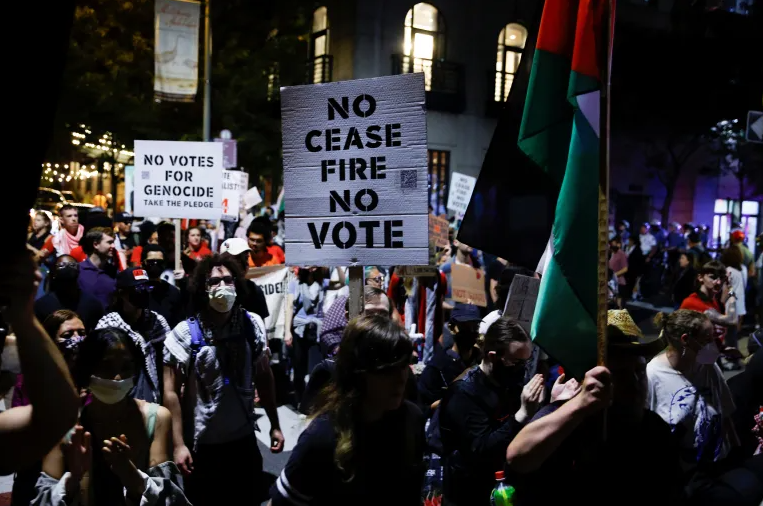
As violence intensifies in the Middle East, Arab voters are expressing significant frustration with Vice President Kamala Harris’s unwavering support for Israel’s military actions in Gaza. With the U.S. presidential election just weeks away, analysts warn that these developments could jeopardize the Democratic candidate’s prospects.

Typically, foreign policy is not a top concern for American voters, but the ongoing war in Gaza and Israel’s military campaigns in Lebanon have raised pressing questions about the U.S.’s role. The Biden administration’s steadfast backing of Israel has splintered the Democratic base, particularly alienating Arab American voters.
In a tight race against former President Donald Trump, dissatisfaction with the Biden administration could lead Arab voters in critical states like Michigan to abstain from voting in November. According to Jim Zogby, co-founder of the Arab American Institute, the identification of Arab Americans as Democrats has drastically declined, with party affiliation now nearly even at 38% for both parties.
Zogby attributes this shift to the administration’s support for the Gaza conflict, which has resulted in immense civilian casualties and destruction. He noted, “It’s not that these voters are becoming more conservative; they want to hold this administration accountable for its actions.”
Recent polling data indicates a notable drop in support for Harris among Arab voters, who are now nearly split in their preferences between her and Trump. While Harris initially gained some support, particularly after Biden’s withdrawal from the race, she has not distanced herself from Biden’s policies, including arms transfers to Israel amid escalating violence.
With a significant Arab American population concentrated in swing states, especially Michigan, their voting behavior could prove pivotal. Polling shows that Harris’s lead in Michigan is precariously narrow, and any substantial turnout decline from Arab voters could severely impact her chances.
Despite the complexities within the Arab American community, many voters feel disillusioned with the Democratic Party’s response to the crisis in Gaza. This sentiment has given rise to movements advocating for a more principled stance on foreign policy, which could further complicate the election landscape.
As the election date approaches, the intertwining of foreign conflict and domestic political dynamics poses a challenge for candidates, particularly in how they engage with issues affecting key voter groups.